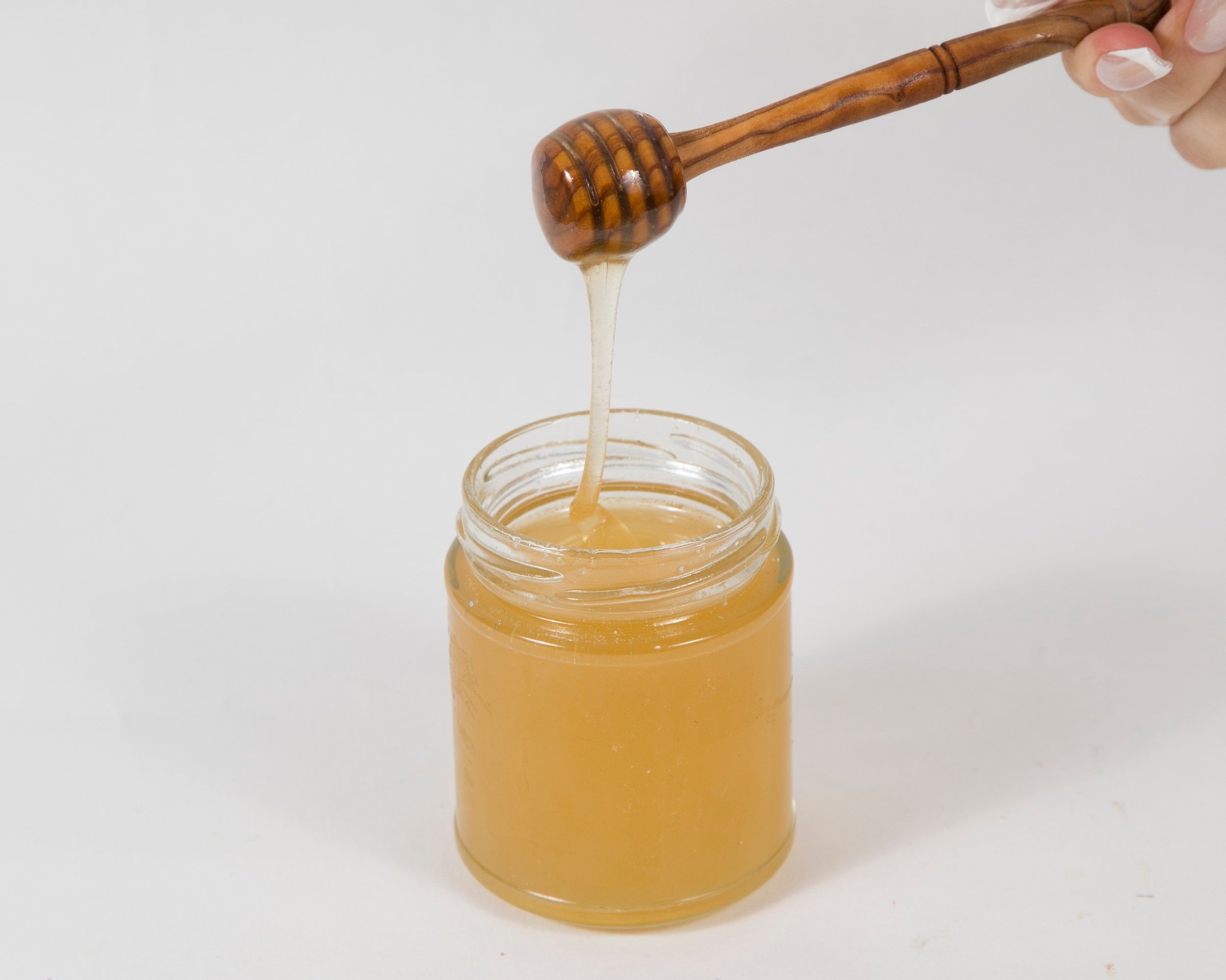
Ever wondered what magic lies within a teaspoon of honey? Well, you're about to find out! Honey, nature's sweet nectar, is not just a treat for your taste buds but a bundle of nutrition packed into a tiny spoonful. From soothing sore throats to being a powerhouse of antioxidants, honey's benefits are as sweet as its taste. But what exactly makes this golden liquid a must-have in your diet? 23 amazing 1 tsp honey nutrition facts will not only satisfy your curiosity but might also have you reaching for that honey jar more often. Ready to be amazed by what a single teaspoon of honey can do for you? Let's dive into the sweet, sticky, and surprisingly nutritious world of honey!
Key Takeaways:
- Honey is more than just a sweetener - it's packed with vitamins, minerals, and antioxidants. It's a natural energy source and can soothe sore throats. Be sure to enjoy it in moderation!
- Different types of honey have unique flavors and nutritional profiles. Look for raw honey for maximum health benefits, and support local beekeepers for sustainable honey production.
What's in a Teaspoon of Honey?
Honey, nature's sweet nectar, is more than just a sweetener. Every teaspoon holds a world of nutrition, offering various health benefits. Let's dive into the facts that make honey a remarkable addition to any diet.
-
Calories: A single teaspoon of honey contains approximately 21 calories. While this might seem high for such a small amount, honey's natural sweetness means you can use less of it than refined sugar.
-
Natural Sugars: Honey is rich in natural sugars, including fructose (about 40%), glucose (about 30%), and smaller amounts of sucrose and maltose. These sugars are responsible for honey's sweet taste and quick energy boost.
-
Vitamins and Minerals: Though in trace amounts, honey contains vitamins and minerals such as Vitamin C, calcium, and iron. These contribute to its overall nutritional profile, making honey more than just a sweet treat.
-
Antioxidants: Honey is packed with antioxidants, including phenolic acids and flavonoids. Antioxidants help combat oxidative stress and reduce the risk of chronic diseases.
Honey's Health Benefits
The nutritional components of honey translate into tangible health benefits. Here's how this sweetener can contribute to your well-being.
-
Energy Source: Thanks to its natural sugars, honey is an excellent source of quick, easily digestible energy. This makes it perfect for a pre-workout snack or a mid-afternoon pick-me-up.
-
Antibacterial Properties: Honey has natural antibacterial properties, making it beneficial for wound healing and skin care. Manuka honey, in particular, is renowned for its medicinal uses.
-
Digestive Aid: Honey can act as a mild laxative and has prebiotic effects, promoting the growth of good bacteria in the gut. This can help improve digestion and overall gut health.
-
Soothes Sore Throats: Its antibacterial and soothing properties make honey an effective remedy for sore throats and coughs. Honey coats the throat, providing relief from irritation.
Honey in Your Diet
Incorporating honey into your diet can be both delicious and nutritious. Here are some creative ways to enjoy honey's benefits.
-
As a Natural Sweetener: Use honey to sweeten your tea, coffee, or baked goods. It's a healthier alternative to refined sugars and artificial sweeteners.
-
In Salad Dressings: Mix honey with olive oil, vinegar, and your choice of spices to create a delicious, healthy salad dressing.
-
For Skin Care: Apply honey directly to the skin as a natural moisturizer or use it in homemade face masks. Its antibacterial properties can help improve skin health.
-
Energy Bars: Make homemade energy bars or balls with honey, oats, nuts, and dried fruits. They're perfect for a nutritious snack on the go.
Honey's Unique Qualities
Not all honey is created equal. Its nutritional content and health benefits can vary depending on its source.
-
Variety: There are over 300 types of honey, each with a unique flavor and nutritional profile. For example, clover honey is mild and sweet, while buckwheat honey is stronger in flavor and higher in antioxidants.
-
Raw vs. Processed: Raw honey retains more of its natural vitamins, minerals, and antioxidants compared to processed honey. Look for raw honey to maximize its health benefits.
-
Geographical Origin: The nutritional content of honey can also vary based on where it's harvested. Local honey, for instance, is believed to help with seasonal allergies.
Sustainability and Honey
Choosing honey also means considering its impact on the environment and bee populations.
-
Support Local Beekeepers: Buying honey from local beekeepers supports sustainable practices and contributes to the health of local bee populations.
-
Bee Conservation: Bees play a crucial role in pollinating plants, including many food crops. Supporting honey production can contribute to bee conservation efforts.
-
Environmental Impact: Sustainable beekeeping practices help ensure that bee populations thrive without harming the environment. Look for honey that is sustainably harvested.
Honey's Place in History
Honey has been valued for its nutritional and medicinal properties for thousands of years.
-
Ancient Medicine: Historically, honey was used in traditional medicine to treat various ailments, from wounds to digestive issues.
-
Cultural Significance: Many cultures have revered honey for its sweetness and associated it with health, prosperity, and even immortality.
-
Preservation: Due to its antibacterial properties, honey was also used in ancient times for preserving food and making fermented beverages like mead.
Nutritional Caveats
While honey is nutritious, it's important to consume it in moderation.
-
Sugar Content: Despite its health benefits, honey is still high in sugars and should be consumed in moderation, especially by those monitoring their sugar intake.
-
Allergic Reactions: Some individuals may be allergic to specific components in honey, particularly those with allergies to pollen or bee stings. Always test a small amount if you're trying honey for the first time.
A Spoonful of Sweetness: The Nutritional Buzz
Honey, just a teaspoon, packs a punch of benefits. It's not just about adding a sweet touch to your meals; it's a powerhouse of antioxidants, essential vitamins, and minerals. From soothing sore throats to being a natural energy booster, honey's nutritional profile is impressive. It's a healthier swap for refined sugar, offering a touch of sweetness without the empty calories. Plus, its antibacterial properties make it a staple in natural remedies. Remember, moderation is key, as it's still high in sugars. Integrating honey into your diet can contribute to a healthier lifestyle, making each teaspoon count. Next time you reach for a sweetener, consider the golden goodness of honey and all the nutritional benefits it brings to the table.
Frequently Asked Questions
Was this page helpful?
Our commitment to delivering trustworthy and engaging content is at the heart of what we do. Each fact on our site is contributed by real users like you, bringing a wealth of diverse insights and information. To ensure the highest standards of accuracy and reliability, our dedicated editors meticulously review each submission. This process guarantees that the facts we share are not only fascinating but also credible. Trust in our commitment to quality and authenticity as you explore and learn with us.


